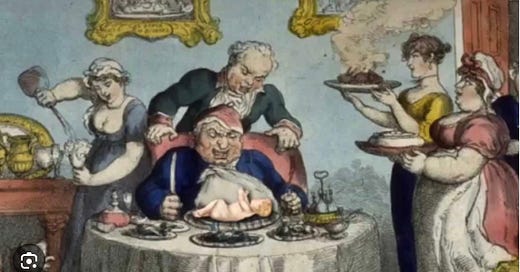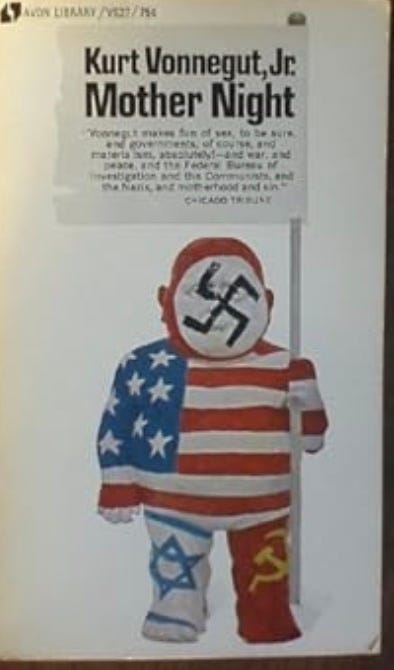The other day, after posting what I thought was a satirical haiku about ICE agents questioning indigenous people about their citizenship, a Facebook friend took me to task and admonished me for spreading false information. As someone prone to self-reflection and criticism, I took his comment to heart. After all, he is an educated man, a physician, and a respected member of his community.
But try as I might, I could not find the disinformation in my post, nor could I see how anyone with an ounce of critical thinking and a knowledge of the current events would mistake satire for “news.”
Over the years, I have been part of a group of people who write and post a haiku a day to share on our own pages and with each other. Several collections have been published including Everyday Haiku: An Anthology and Holding Up the Moon: A Memoir in Haiku. Most of the haiku in both collections are about traditional subjects like the natural world, and many veered into the exploration of the psyche and inner life.
But as the political realities of encroaching authoritarianism grew into actions and policies which upended lives, my 17 syllable observations became more political and often relied on the aesthetics of satire and exaggeration to engage the conscience of the reader by shining a clear light on events and issues that are hard to discern in an environment of lies and gaslighting.
I should have known better.
For one, the internet and social media platforms are not conducive to nuance, analysis and critical inquiry. Knee jerk responses based on half assed, lazy or shallow mis-readings are commonplace.
But more importantly, in this time of outrageous and incomprehensible disdain for knowledge and expertise by the president and his minions, we may have reached the end of satire.
I remember learning about satire as an English major at Penn State University in the 1970s. In an introduction to literary criticism, I was given a handout which described different types of humor as a hierarchy of form, purpose and audience. I recall that physical humor – slipping on banana peels and pratfalls was on the bottom requiring the least amount of thought and appealing to the largest audience.
Satire was at the top of the hierarchy of humor chart because it required the most background knowledge of the context to “get” the author’s intended meaning and because it was understood by the smallest number of readers.
There are many definitions of satire and some critics have even noted different types. For the purpose of this essay, I am using this working definition:
Satire is a literary genre which uses a wide variety of literary techniques, such as exaggeration, humor, and irony to write about a flaw or failure in society by inflating it to absurdity to criticize and bring about a positive change.
The example my lit professor used to teach us freshmen about satire ( and the piece I used for years as a high school English teacher for the same purpose ) was “A Modest Proposal.” Using all of the rhetorical conventions of argument and persuasion, Jonathan Swift addresses a serious social problem of his day - the poverty and hanger experienced by the Irish people. In a brilliant stroke of genius, Swift bring us along with him to his famous climactic conclusion – that the economic problems of Ireland could be solved by infanticide and cannibalism.
It was hard for me to believe that anyone might have read that piece and concluded anything other than it was a critique of Britain’s cruel policies in Ireland. Perhaps I could see how some people might read it and think Swift was being serious and express outrage at him for his proposal. Harder to grasp was the idea that there would be some who missed the irony and exaggeration completely and would find Swift’s recommendation plausible and even actionable.
I learned my lesson while watching “All in the Family” with a friend and her mother. in the early Seventies. The episode was about Archie’s gall bladder operation where he ends up getting a blood transfusion from a Black doctor. In horror, Archie opines that such a thing cannot possibly happen because, “Black blood is different from white blood” – to me, an obvious critique of those who would believe such an absurdity. But in that moment, my friend’s mother, who saw herself as a reasonable person and somewhat tolerant to changing ideas and laws pertaining to race, looked up at us and asserted, “Well! Some of the things that Archie says are true,” and then went back to watching and criticizing him.
When I taught literature and writing, I often engaged my students in discussions about purpose and audience. When you read something, what was the author’s purpose in writing something? Who was their intended audience? How might the writing be viewed differently by different audiences? How responsible is an author for the reactions their work engenders in others?
With satire it’s really difficult to parse these questions. After that “All in the Family” moment, I remember being distraught and confused about those questions. Even though Norman Lear’s intention with Archie Bunker and his racist views was to skewer them and hope the absurdity would prompt a change in attitude and perhaps even action, the fact that some would instead take Archie’s comments out context ( or even fail to SEE the context) continues to give me real pause today.
Another book comes to mind in this time of disinformation and propaganda. Kurt Vonnegut’s novel “Mother Night” begins with this epigraph:
“We are who we pretend to be so we must be careful about what we pretend to be.”
The novel tells the story of an American actor living in Germany before and during WWII who is imprisoned after the war in Israel as a Nazi propagandist and war criminal. Hired as a radio broadcaster of Nazi propaganda, he is secretly recruited to spy for the Allies. It is revealed that within his highly influential pro-Nazi broadcasts, this American aided the US by peppering his propaganda with secret coded words conveying Nazi secrets. In the end, the protagonist commits suicide, unable to reconcile the good he may have done secretly with the evil lies he spread to keep his cover.
So this brings me back to purpose and audience and how meaning is not clear cut or binary in times of chaos. Chaos agents thrive on confusion as they “flood the zone” with more and more misinformation, false identities, trolls, bots and outrageous and unlawful executive orders.
So this creates a dilemma for those who want to use satire as a tool of critique and change. Can we justify sharing our work publicly even when there will be those who think we actually believe the exaggeration we are lampooning?
And are we somehow complicit when readers/viewers not only BELIEVE the outrageous exaggerations but use the satire itself to affirm and justify their harmful racist, sexist, cruel and unjust actions?
Here is the haiku which sparked outrage of one reader on my Facebook page.
This was based on news reports that indigenous people were being stopped and questioned by ICE agents about their citizenship and country of origin. Somehow this reader believed that I was spreading false information about Navajos being deported. Maybe he didn’t read the first line about not teaching history and how the post was calling attention to the possible outcomes of historically illiterate ICE agents actually believing Navajo people are “illegal aliens.”
In a world which makes sense, in a country where leaders are rational, decent, truth and justice loving individuals, a suggestion of deported Native Americans under trump’s attack on immigrants would be seen as the absurd exaggeration it was meant to be – IF the reader was capable of seeing the satire.
But we don’t’ live in that kind of world or country right now.
When a candidate for the presidency of the United States, himself a former holder of tha office can stand on a debate stage across from the sitting Vice President and scream into the cameras, “They’re eating the cats! They’re eating the dogs!” about Haitian immigrants in Ohio and that remark is viewed not only as truth but as justification for draconian executive orders against immigrants, we have moved into a post satire reality.
And when the same man, now president once again stands before a grieving and shocked nation in the wake of the first major airline disaster since 2009 with the bodies of the dead still in the cold water of the Potomac and proclaims that his “common sense” tells him the cause of the disaster was Marxist meritless DEI hiring policies even before the NTSB began its investigation, we know we are no longer living in a shared reality based on fact and a quest for truth.
What do you think? Have trump and MAGA killed satire? Are we living in a post-satire world? Can there be real satire if we can no longer discern the truth?






